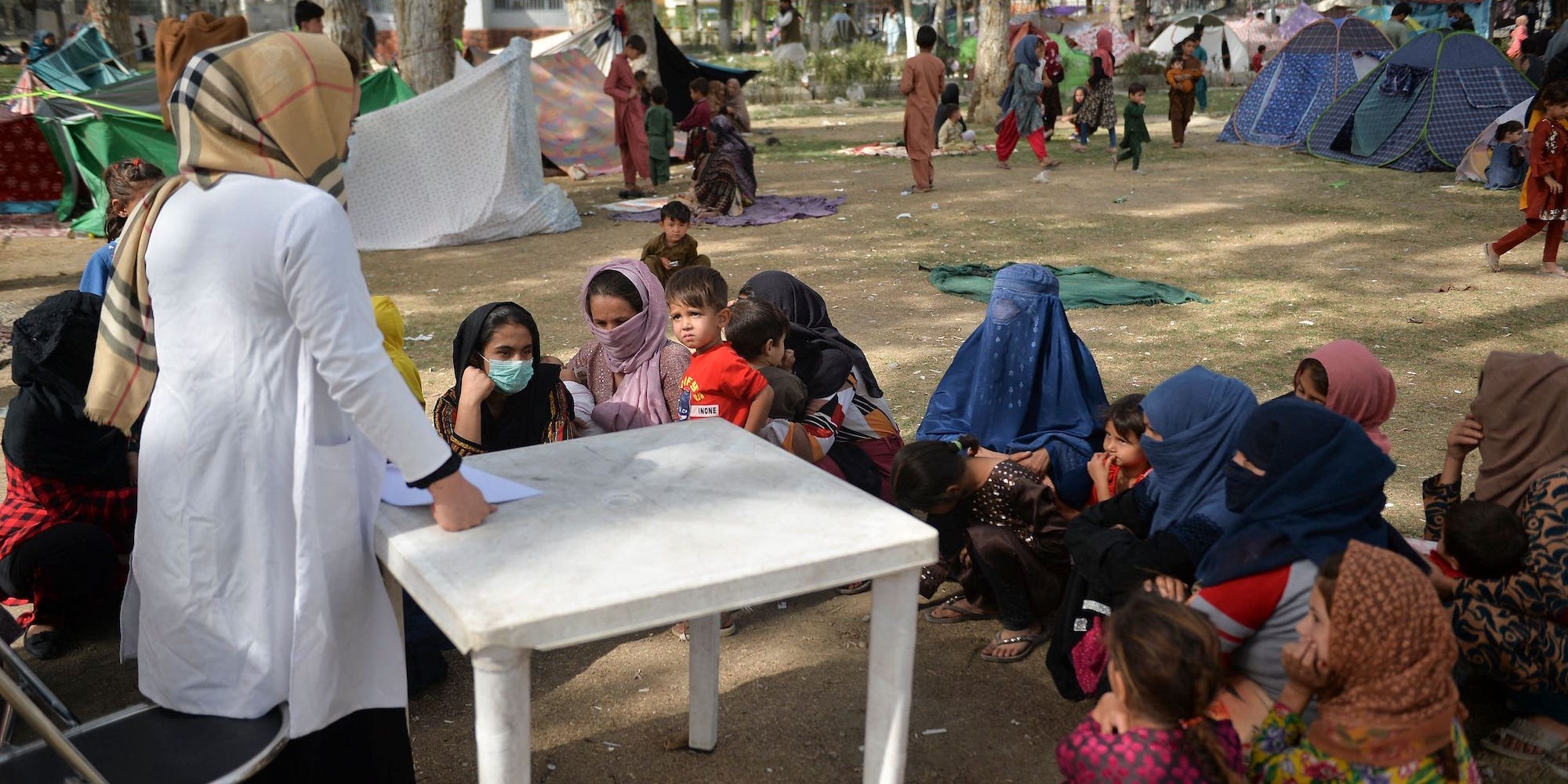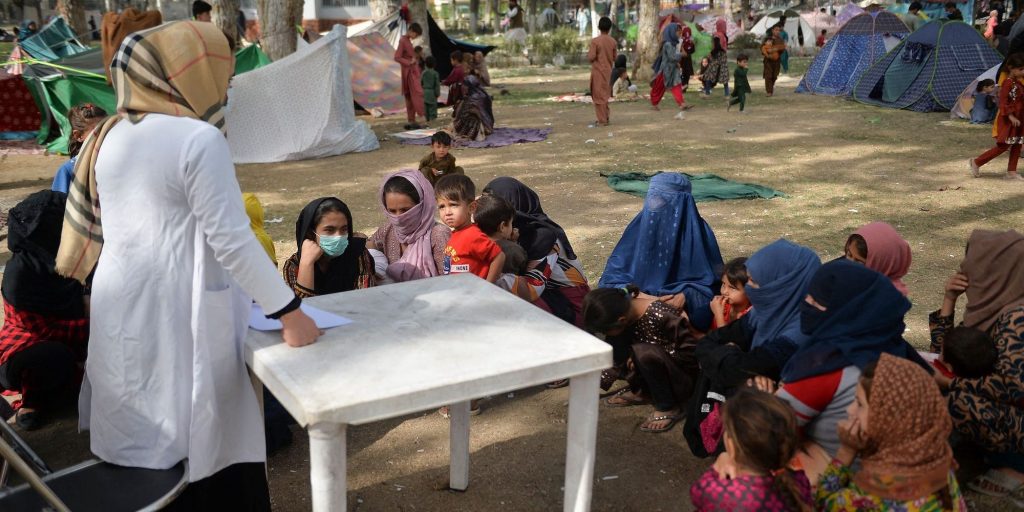
Hoshang Hashimi/AFP via Getty Images
- 14 million Afghans "are marching to the brink of starvation," The World Food Program said.
- UNICEF said a million kids could die from malnutrition this year alone.
- The UN received more than $1 billion in international aid pledges for the country on Monday.
- Visit Insider's homepage for more stories.
Almost 10 million kids in Afghanistan depend on humanitarian assistance to survive and one million kids could die from malnutrition this year, UNICEF said on Monday.
"Without urgent action, the grim situation facing Afghanistan's children is likely to deteriorate over the coming months because of severe drought and water scarcity, the concerns around financing for the continuity of basic services, the onset of winter, and the consequences of the COVID-19 pandemic," UNICEF Executive Director Henrietta Fore said in a statement.
The UN on Monday held a donor conference in hopes of raising $606 million for Afghanistan. Donors far exceeded that goal, pledging $1.1 billion, Reuters reported.
The World Food Program's (WFP) executive director, David Beasley, said one in three Afghans, or 14 million people, "are marching to the brink of starvation – they don't know where their next meal is." Another 14 million are dealing with less severe food insecurity, he said.
The cost of cooking oil has doubled and 40% of the country's wheat crops have already been lost, Beasley said. The majority of the country is already finding ways to cope with the lack of food, he said.
"Those are things like skipping meals or preferring to give food to children instead of adults or limiting portion sizes to make food last longer have almost doubled. So, now there are three out of four Afghan families employing at least one if not more of those approaches," WFP deputy regional director, Anthea Webb, told VOA.
The Taliban, which took over control of Afghanistan on August 15, have said they will allow aid workers to safely work in the country. In the aftermath of the takeover, Afghanistan has been seeing a "brain drain" with educated people fleeing the country. Women who remain in the country have said they fear for their futures should the Taliban put an oppressive regime back in place.
Beasley said WFP has more than 460 employees on the ground in Afghanistan that are "putting their lives on the line every day to make sure that people don't suffer."
Beyond the imminent food crisis, Afghanistan's healthcare system, which heavily relies on aid, is also at risk of collapse, public health officials previously told Insider's Bethany Dawson.
As one doctor, who runs a hospital in Kabul and whose name was withheld to conceal his identity, told Dawson: "If your physical safety is not threatened, then your mental health is - for everyone."

